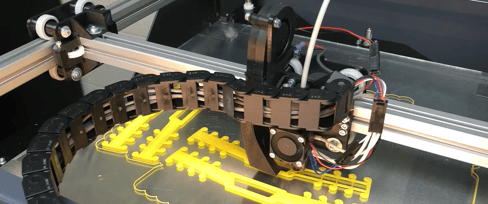What Type of Machines are Used in CNC Machining? And other FAQs
In precision machining, there are a wide range of machines needed to create custom made parts. Certain machines are only able to machine particular materials, so when you need a custom part, choosing a precision machining company that has a wide range of machines is crucial. In today’s blog we are going to be looking at these type of machines along with other frequently asked questions we receive at LPP. Continue reading to find out more about precision machining.

What Type of Equipment is Used in Precision Machining?
Some of the most commonly used machines are turning, grinding, and milling equipment. Lathe machines are also used for shaping parts. Alongside, surface & universal grinders, hydraulic presses, roll thread machines, drill units, and thread rolling machines are frequently used to create custom parts.
What is Turning, Grinding, and Milling Equipment?
Turning machines are used to rotate material. At the same time, cutting tools will shape the part during the turning process. Milling machines use rotary cutters in order to remove excess material from your part. Finally, grinding machines remove excess material from a workpiece, commonly through the use of a rotating grinding wheel. Some common types of grinding, include centerless, surface, and internal.
How Important is the Part Inspection Process?
LPP strongly recommends choosing a precision part manufacturer that offers various levels of part inspection. We strongly believe in this process as it will prevent against any potential deformities or damage that been caused during machining.
What are Some Types of Part Inspection?
Types of part inspection include surface roughness testing, crack & weld flaw detections, hardness testing, elongation & tension testing, high resolution dimensional inspection, and fluorescent penetrant inspection.
What is Fluorescent Penetrant Inspection?
The inspection process is a form of non-destructive testing that is able to display defects without deforming, marring, or otherwise damaging a finished product.
Now that you have learnt some of the common equipment and capabilities of precision machining it is important to choose a precision machining company that delivers the highest level of custom parts to the tightest of requirements. Here at LPP, we have a wide range of equipment and inspection processes to complete your custom project needs. To begin a project, start a project consultation today. Alternatively if you have any questions our team is happy to help. Reach out to us by email at loosnaples@sales.com or by phone at +1 (239) 643-LOOS (5667).

